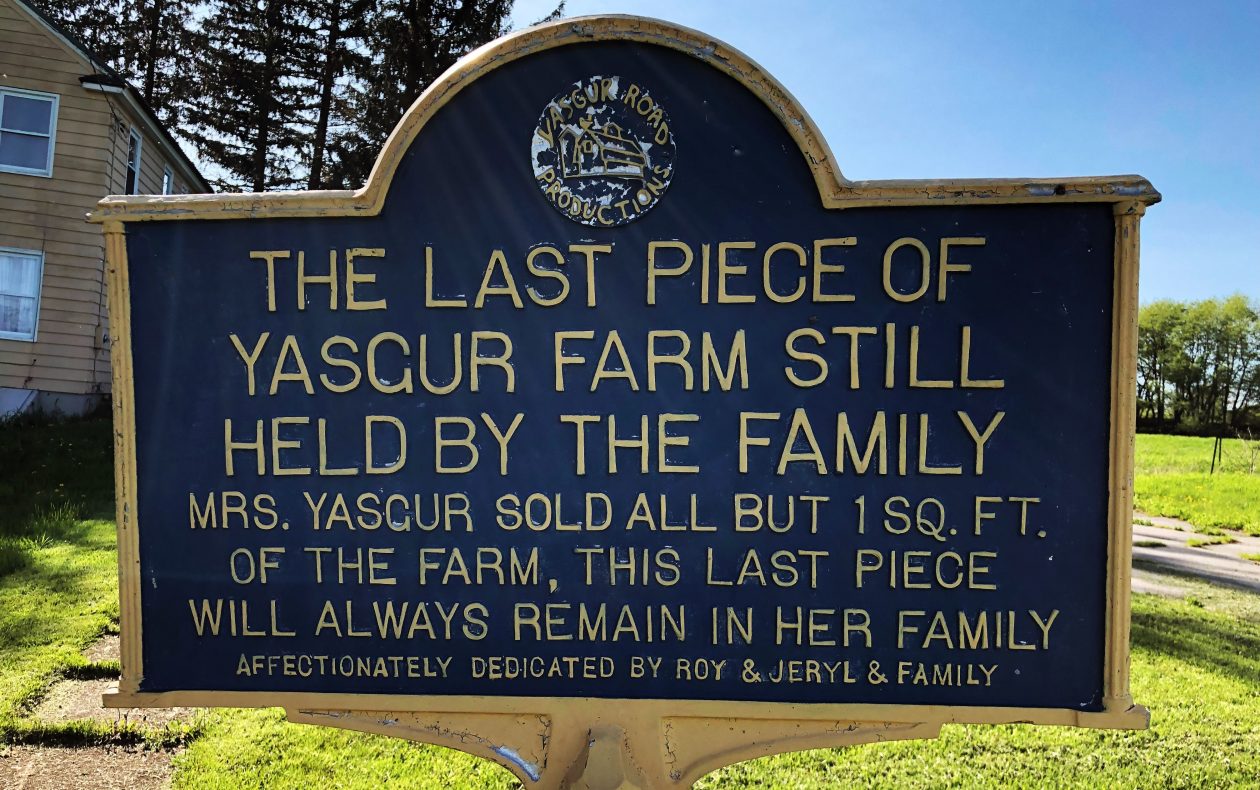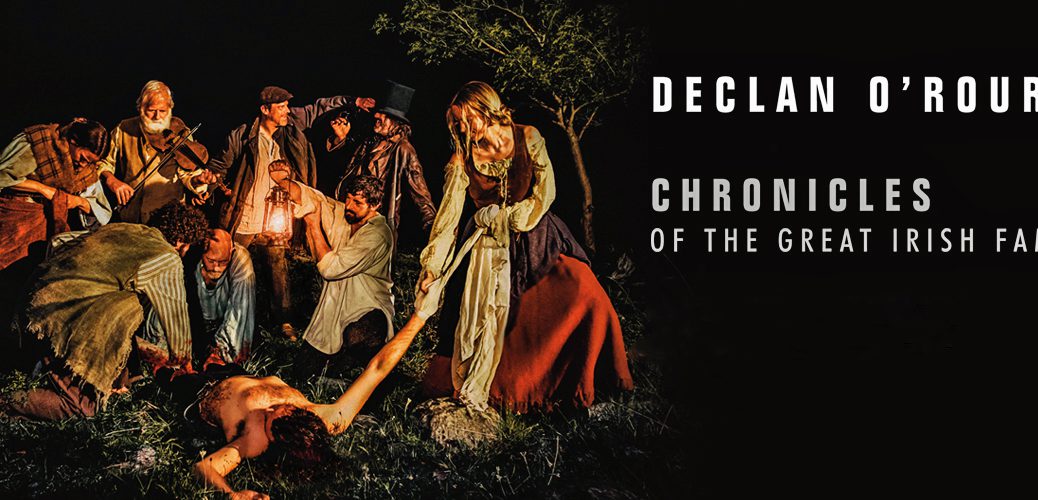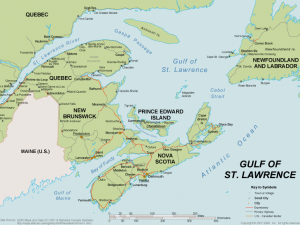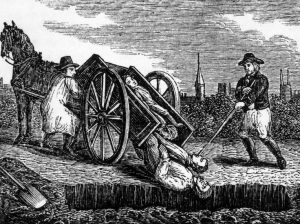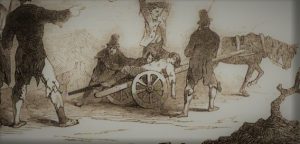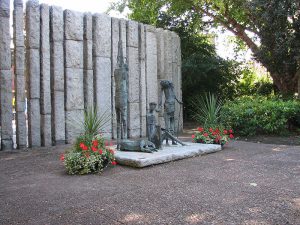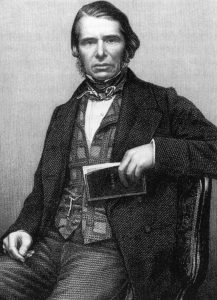Declan O’Rourke Villain Curry Shaw
It is easier to mistreat others as long as we paint “them” as inferior, non-human. The British did just that with the Irish. Even their Punch cartoons dehumanized the Irish.

Bob Dylan excoriated William Zantzinger, the man who killed Hattie Carroll.
Declan O’Rourke does the same to Curry Shaw.
Declan O’Rourke Villain Curry Shaw
Coffin Ships
As the number of Irish fleeing their homeland by sea increased, the conditions on board ships worsened as unscrupulous ship owners realized a golden opportunity. The refugees literally became ballast. Disease and death spread easily and even the long-hoped for arrival at an American port often meant weeks of quarantine.
In 1847 the US Congress passed the Passenger Act. The Act’s purported intent was to regulate the carriage of passengers in these vessels. In actuality, rather than abide by the new Act, unscrupulous shipping companies simply changed their destination to Canada and continued using the same ill-equipped ships. The Irish could stay there (as many did) or find their way to the United States.
Declan O’Rourke Villain Curry Shaw
The Hannah
On April 5, 1849, under the command of Captain Curry Shaw, The Hannah set sail for Quebec. Its last cargo had been coal. This time the ship’s cargo was 176 passengers, the great majority of whom were from the Parish of Forkill, South Armagh.
While records are not completely available, there are numerous allegations that Shaw confined the passengers below deck for long periods, cut the rations of food and water and threw the three latrines overboard after a few days at sea.
William Graham, the ship’s English surgeon , witnessed Shaw “crawling into the bunks of unmarried women passengers,” raping them.
Declan O’Rourke Villain Curry Shaw
Cabot Strait
The Cabot Strait lies between New Newfoundland and Cape Breton and leads into the Gulf of St Lawrence and thence to the St Lawrence River. At 4 a.m. on April 29, 1849, in gale-force wind, the Hannah rammed a reef of ice in the Cabot Strait.
Shaw ordered the hatch covers nailed shut and despite the efforts of Dr Graham to stop them, Shaw, the first and second mates and a few crewmen abandoned the sinking ship in the ship’s only lifeboat.
Declan O’Rourke Villain Curry Shaw
Some rescued
As the ship sank, the passengers, able to get out after a crewman opened the hatches, sought the “safety” of the ice floes. There they waited until 6:30 pm when Captain William Marshall of the ‘Nicaragua’ discovered the survivors on the ice. He and his crew were able to rescue of 129 passengers and nine seamen.
The people so suffered from hypothermia that most had to be lassoed by the Nicaragus’ crew and hauled aboard. Marshall said ‘no pen can describe the pitiable situation and destitution of these passengers’.
He transferred some of the passengers to four other ships and arrived in Quebec fourteen days later; one day after Captain Shaw who had reported the total loss of all on board the ‘Hannah’.
Declan O’Rourke Villain Curry Shaw
Aftermath
Captain Marshall received an inscribed silver goblet from the Irish in Quebec. Most of the surviving passengers continued to North Crosby, Westport, Ontario, which their descendants still call ‘little South Armagh’.
Surgeon Graham testified against Curry Shaw, Shaw received no punishment. Graham had broken his ankle jumping from the ship and trying to stop Shaw. Shaw had repulsed Graham’s attempt by hitting him with a cutlass.
Graham died from his various injuries and frostbite a month later.
Declan O’Rourke Villain Curry Shaw
Two passenger stories
John Murphy
John Murphy had put his 6-year-old twin boys, Owen and Felix, aboard an ice floe, thinking it safe. He swam off to rescue 3-year-old Rose. Murphy then turned to his boys as they drifted away. He lost them in the darkness, forever. He lost all of his teeth from frostbite.
Ann McGinn
Ann McGinn husband had emigrated in 1848. She traveled with their six children to join him in Ontario.
She arrived in Quebec alone.
Declan O’Rourke Villain Curry Shaw
Lowest of the Low
O’Rourke sings:
You villain Curry Shaw!
Your name forever dwell
As captain of the cowards
On the lifeboat down to hell.
Hell hath no fury like a poet scorned.
Links to two articles about the event: The Star and the Ring of Gullian
